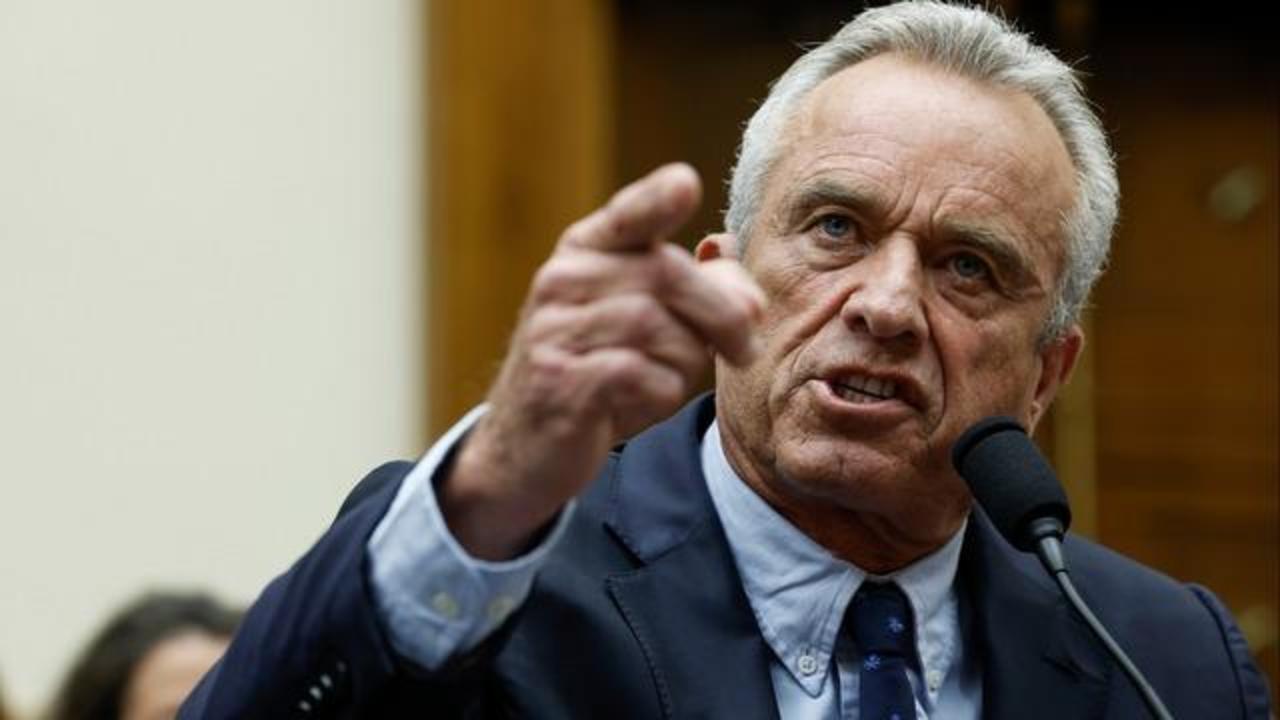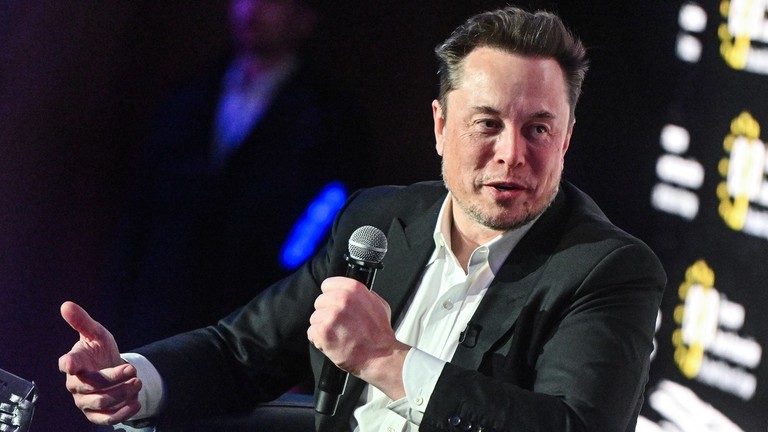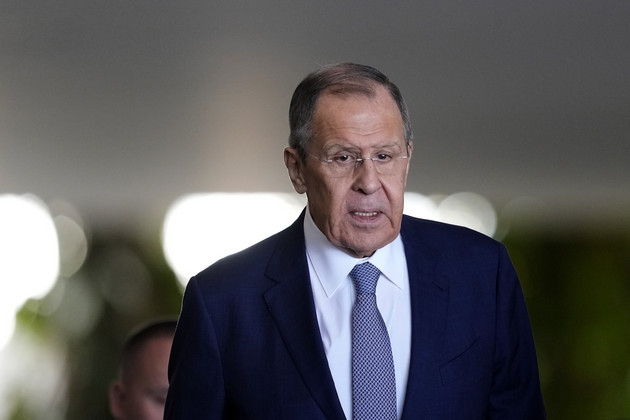After witnessing the epic showdown of a censorship hearing trying to censor a censorship hearing, one can't help but wonder if the government's censorship tactics will make it out alive. It's almost like watching a cat chase its tail while trying to cover its tracks. But fear not, dear readers, for the First Amendment warriors have donned their capes and rallied behind Robert F. Kennedy Jr. to uphold the sacred freedom of speech. Let's see if government censorship can stand up to the power of the people's voice, or if it'll end up in the "censorship graveyard" alongside dial-up internet and the fax machine. Stay tuned for the next episode of "Censor Wars" – a saga of epic proportions!
In a groundbreaking hearing aimed at uncovering the extent of government censorship and its impact on freedom of speech, Robert F. Kennedy Jr., the Chairman of Children's Health Defense (CHD), delivered a resolute testimony before the Subcommittee on the Weaponization of the Federal Government. Despite heated interruptions from House Democrats trying to exclude him as a witness, Kennedy fearlessly expressed his concerns, joining other notable figures who also testified on the matter. This article delves into the key highlights of the hearing, shedding light on the vital issue of government censorship and its potential implications on Americans' First Amendment rights.
Can Government Censorship Survive the Censorship Hearing? https://t.co/DSDgAhRzkI
— The Carnivore Den (@CarnivoreDen) July 23, 2023
Unveiling Government's Role in Censoring Americans: A Pivotal Hearing The U.S. House hearing, organized by the Subcommittee on the Weaponization of the Federal Government, held a momentous purpose - to scrutinize the government's role in censoring its citizens. The primary focus was on examining "Big Tech's collusion with out-of-control government agencies to silence speech" and the controversial Missouri v. Biden lawsuit, which accused the government of stifling freedom of expression.
Prominent Witnesses Address Censorship Apart from Robert F. Kennedy Jr.'s compelling testimony, several other noteworthy witnesses contributed to the hearing. D. John Sauer, the special assistant attorney general for Louisiana and an attorney representing the plaintiffs in the Missouri v. Biden case, shared crucial insights. Additionally, Emma-Jo Morris, a journalist from Breitbart, who initially exposed the infamous "Hunter Biden laptop story" in 2020, provided valuable input. Maya Wiley, the President, and CEO of The Leadership Conference on Civil and Human Rights, also presented her perspective on this critical matter.
Can Government Censorship Survive the Censorship Hearing?
Bold Testimony on Government Censorship: Robert F. Kennedy Jr. Stands Firm in House Hearing https://t.co/ufiiXq88xi
— The Carnivore Den (@CarnivoreDen) July 23, 2023
Challenging Government Censorship and the First Amendment The hearing revolved around the contentious issue of government censorship and its potential violation of the First Amendment. Robert F. Kennedy Jr. emphasized the importance of free speech, stating, "The First Amendment was not written for easy speech. It was written for the speech that nobody likes you for." This highlighted the need for protecting unpopular but essential expressions of thought.
Protecting the Freedom of Press Emma-Jo Morris highlighted the dangers posed to a free press by the unholy alliance between government officials and American corporations. She stressed that this collaboration aimed to undermine the essence of the First Amendment - the right to express, think, write, read, and speak without restrictions. The response to this threat would ultimately determine the fate of a truly independent and inalienable free press.
Federal Court Ruling Against Social Media Censorship D. John Sauer referred to the significant July 4 ruling by Judge Terry Doughty of the U.S. District Court for the Western District of Louisiana. This ruling barred federal agencies and the White House from censoring social media posts. Sauer emphasized that the government's insistence on suppressing content on social media platforms demonstrated its overreach and disregard for freedom of expression. The court ruling exposed the extent of government interference in social media discourse.
Expanding Government Censorship Efforts Sauer drew attention to the alarming scope of the federal government's censorship endeavors, which affected millions of social media posts and speakers across America. The impact was felt in discussions surrounding contentious political and social issues, where federal censors sought to exert control. He warned that these censorship efforts were not only ongoing but also continuously expanding into new domains, posing a significant threat to freedom of speech.
Democrats Attempt to Silence the Hearing In a bid to prevent Robert F. Kennedy Jr. from testifying, House Democrats initiated efforts to disqualify him. They sent a letter signed by 102 House Democrats to House Republican leadership, seeking to rescind Kennedy's invitation to testify. They alleged that Kennedy had espoused antisemitic and anti-Asian views, and thus, his credibility as a witness was questionable. However, House Republican leadership stood firm in their decision, recognizing the importance of a fair and open hearing on censorship.
Kennedy's Response: Unveiling the Irony of Censoring a Censorship Hearing Robert F. Kennedy Jr., in response to the accusations against him, made a bold statement during the hearing. He cited the letter signed by the 102 House Democrats as evidence of the very problem the hearing aimed to address - an attempt to censor a censorship hearing. This ironic situation underscored the significance of the hearing itself and the need to safeguard the freedom of expression and robust public discourse.
Conclusion: Standing Strong Against Censorship The hearing organized by the Subcommittee on the Weaponization of the Federal Government brought to light the concerning issue of government censorship and its potential infringement on Americans' fundamental rights. Robert F. Kennedy Jr.'s unwavering testimony, alongside other prominent witnesses, shed light on the importance of protecting the First Amendment and the freedom of the press. Despite attempts to obstruct the hearing, it prevailed as a critical platform to address censorship and advocate for the unimpeded exchange of ideas and opinions. The battle to preserve freedom of speech continues, as citizens and lawmakers strive to uphold the principles upon which the nation was founded.
Support My Journey 
If you’ve enjoyed this article, please consider donating! I’m saving up to buy a used car to keep my travels (and stories) rolling. Every little bit helps — and is deeply appreciated. GoGetFunding




